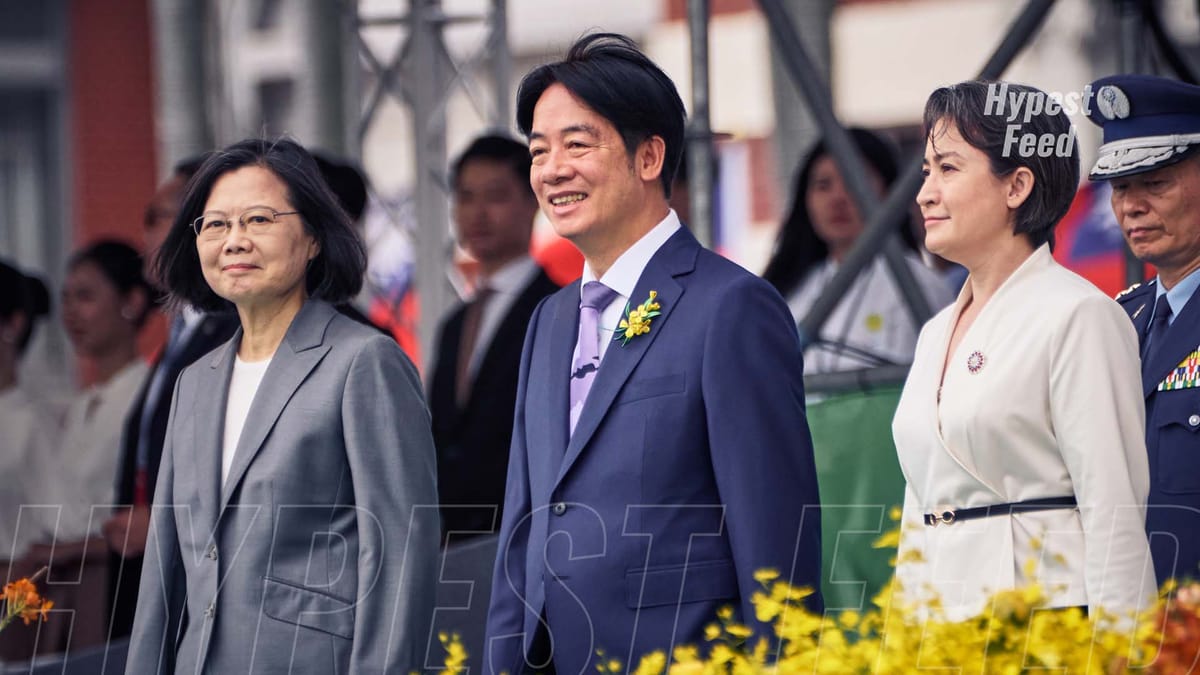Taiwan's New President William Lai Tells China: 'Stop Threatening Taiwan'
In a bold and unequivocal statement, Taiwan's newly inaugurated President William Lai has called on China to cease its threats against the island nation. The announcement came during Lai’s inaugural address, where he emphasized Taiwan’s steadfast commitment to its sovereignty and self-defense amid escalating tensions with Beijing.
Lai's Inaugural Speech
Taking office with strong support from the Taiwanese people, President William Lai wasted no time in addressing one of the most pressing issues facing his administration. In his speech, Lai outlined his vision for Taiwan’s future, which includes strengthening national defense, enhancing economic resilience, and promoting diplomatic ties with other nations. Central to his address was a direct message to China: the era of intimidation and threats must end.
Call for Peaceful Dialogue
President Lai reiterated Taiwan's dedication to maintaining peace and stability in the region. He called for peaceful dialogue based on mutual respect, emphasizing that Taiwan's sovereignty is non-negotiable. "We seek peaceful coexistence with China, but we will not yield to threats or coercion," Lai declared, receiving strong applause from the audience.
Strengthening Defense and Alliances
Lai highlighted his administration's plans to bolster Taiwan’s defense capabilities. This includes modernizing the military, increasing defense spending, and enhancing cooperation with international allies. Lai underscored the importance of Taiwan's strategic partnerships, particularly with the United States, Japan, and other democratic nations, in countering Chinese aggression.
China’s Response and Regional Impact
China, which considers Taiwan a breakaway province, has not yet officially responded to Lai's remarks. Historically, Beijing has reacted strongly to any assertions of Taiwanese independence, often conducting military drills and issuing stern warnings. Lai's speech is expected to further strain cross-strait relations, potentially impacting regional stability.
International Reactions
The international community is closely monitoring the situation. Allies such as the United States have reiterated their support for Taiwan’s self-defense and democratic values. "We stand with Taiwan in the face of coercion and will continue to support its efforts to maintain peace and stability," a US State Department spokesperson said.
Domestic Support and Challenges
Domestically, Lai's firm stance has garnered widespread support among Taiwanese citizens, who have long valued their democratic freedoms and way of life. However, Lai faces significant challenges ahead, including managing economic relations with China, which is Taiwan's largest trading partner, while upholding national security.
Conclusion
President William Lai's inaugural address marks a pivotal moment in Taiwan’s ongoing struggle for sovereignty and security. His call for China to stop its threats is a clear indication of Taiwan's resolve to defend its independence. As Lai's administration moves forward, the world will be watching closely to see how this dynamic unfolds and impacts the broader geopolitical landscape.
Taiwan stands at a crossroads, with its future shaped by the resolve of its leaders and the support of its allies. In the face of external pressures, President Lai's message is clear: Taiwan will stand firm and continue to chart its own course as a proud and independent nation.



Member discussion: